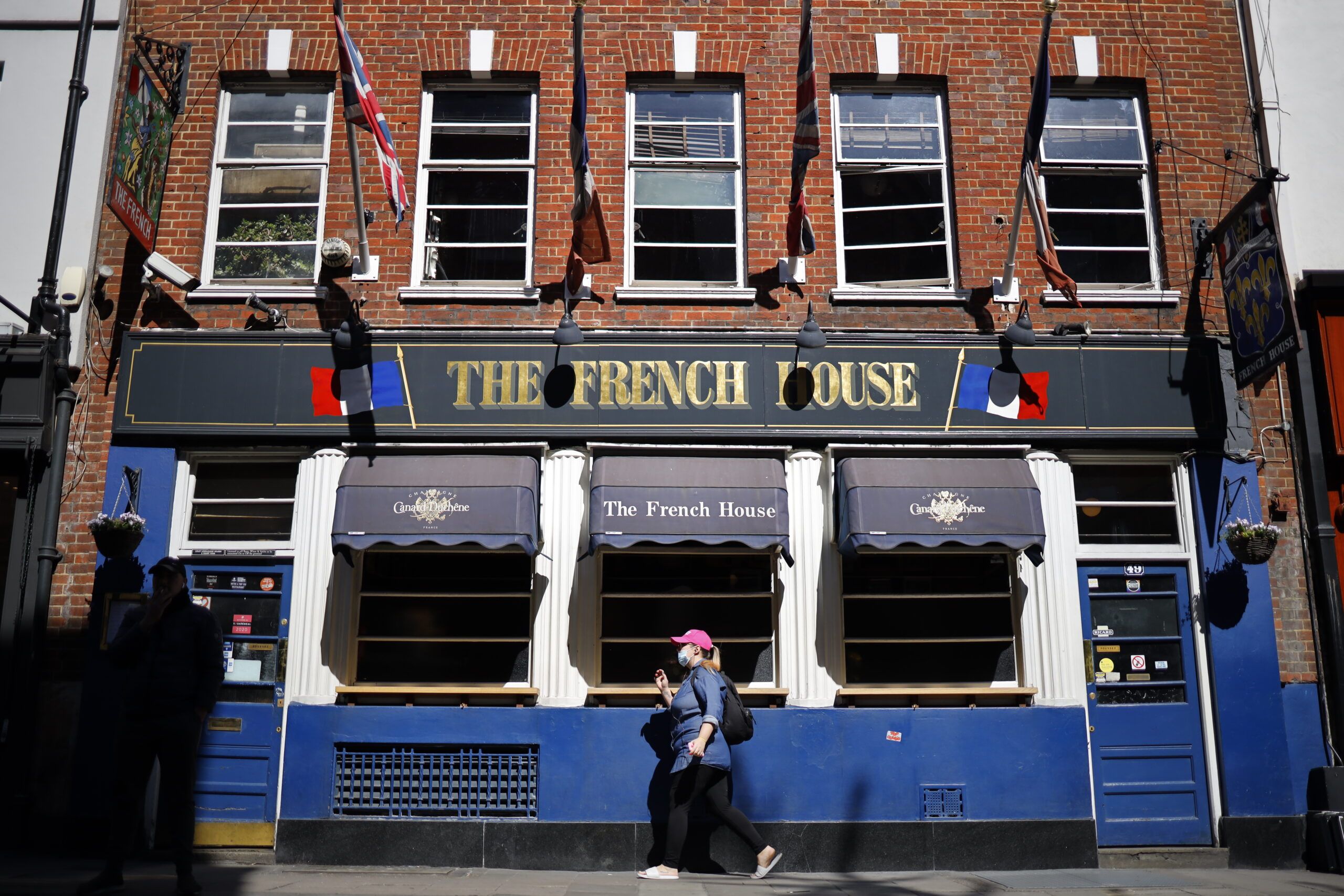UK pubs try to avoid last orders as virus crisis deepens
The French House pub, 129 years old, has survived two world wars — but being forced to close during the virus lockdown has threatened its future (TOLGA AKMEN)
London (AFP) – The French House survived two world wars and global recessions. Charles de Gaulle is said to have frequented it and Dylan Thomas once left his manuscript for “Under Milk Wood” at the bar.
But the 129-year-old pub in Soho, central London, is under threat because of the coronavirus outbreak, and has launched an online appeal for £80,000 ($92,000) to keep it going.
“It’s horribly awful,” landlady Lesley Lewis told AFP. “We had to do that. We didn’t have enough reserves to fall back on.”
Lewis, who has run the pub for 31 years, said she doesn’t know if the pub has ever closed before, though it is rumoured to have shut “for a day” after being bombed in World War II.
The pub is trying raise the money from “friends, its fans, and its family” as it tries to meet its continuing costs with no takings.
– ‘Ancient, inalienable right’ –
The seven-week national shutdown has had a devastating economic impact in Britain, not least on pubs — one of the country’s most recognisable institutions.
Prime Minister Boris Johnson ordered all of them to close in late March. They are unlikely to reopen before July at the earliest.
“We’re taking away the ancient, inalienable right of free-born people of the United Kingdom to go the pub,” he said gravely.
Historians believe it could be the first time since the Great Plague of 1665 — or possibly ever — that all British pubs have shut.
“In modern times, the only precedent was during the Second World War. Pubs sometimes closed because of shortages of beer,” said social historian Paul Jennings.
But even during bitter conflict they stayed open as it was seen as “good for morale”, he added.
The question now is whether all of them will reopen once the lockdown is lifted.
– Devastating impact –
Britain is home to some 50,000 pubs, which employ almost 500,000 people — and the industry was facing tough times even before the devastating impact of COVID-19.
The British Beer and Pub Association trade body said many landlords were already struggling to survive in the face of an economic onslaught in the last few years.
Owners of “the local” have had to deal with increased beer duty, a smoking ban, the 2008 global recession and an increase in business rates.
Many landlords are now faced with the immediate problem of having to pay rent to the breweries that typically own their premises and taxes to the local council.
On top of that, they are losing stock and have had to furlough staff — or at least manage these problems by seeking payment holidays and apply for help from the government’s support scheme for small businesses.
“It’s clearly having a devastating affect on the industry,” said Tom Stainer, chief executive of CAMRA, the Campaign for Real Ale, which promotes traditional British pubs.
“I think it will be naive to expect every pub to get through this.”
– ‘Gaping hole’ –
The Hearsall Inn in Coventry, central England, prides itself on having “the best pint of Guinness around”.
But co-owner Daniel Scott served his last drop of the black stuff on March 20.
He said the current crisis is incomparable to anything he’s known in the 22 years his family has run the pub.
The traditional pub near the city centre is normally packed and a focus for the local community.
Because of that, Scott is confident they will weather the storm.
“I am positive,” he said. “We are well established and we have great regulars and if you ask any of them, they are itching to get back to the pub.”
The regulars are desperate to get back to the boozer.
Rakesh Modha would go to his village local The Linden Tree, in Bursledon, near Southampton in southern England, up to four times a week, helping to run a weekly quiz among other things.
“I am missing it and the interaction with my friends,” said the accountant. “A gaping hole is apparent in my life.”
As the government looks to gradually lift lockdown restrictions, pubs may be able to reopen in some form in the coming weeks and months.
But there are likely to be changes: Scott says protective screens for staff and customers may need to be introduced, and door staff employed to restrict numbers.
Whatever form it takes, Jennings believes pubs will weather the storm.
“The pub is clearly going to be around for a long time,” he said.
Disclaimer: Validity of the above story is for 7 Days from original date of publishing. Source: AFP.


